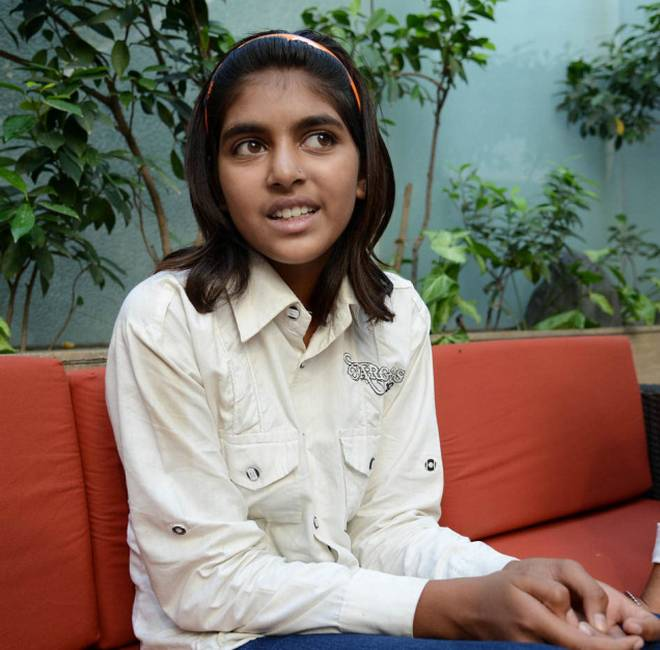It takes extraordinary courage to stand up for what you think is right when you're going against your community's culture. And it takes unbelievable courage to stand up for what you think is right when you're barely a teenager.
In 2010, Jyoti Yadav's mother was a young widow. In India, that's a particularly bad thing. She was prevented from remarrying, banished from family functions, isolated from society, and denied rights granted to other citizens. In some cases, widows' heads are shaven and they're made to wear clothes that distinguish them from other women. As Jyoti says, "There is no honor for widows in our society. In my village, they aren't allowed to come out of the house and mix with others, they aren't allowed to wear nice clothes, and their very presence is considered an ill omen. I wanted to change all that."
Jyoti Yadav was only 13 and didn't really know how to begin changing all that. She approached one of her teachers and then a village leader, both women and both sympathetic. They convened some meetings, talked about the issue, and helped her make a plan.
The plan involved Jyoti going from house to house in her village—talking with people, trying to get them to understand the plight of the widow. "Initially," the girl says, "nobody listened to me as I was so small. Often, I would be thrown out. But I didn't lose courage and went right back. I also used to do nukkad nataks (street plays) with 4-5 friends as taught by my teachers. Eventually, the elders decided to give me a hearing, but I had to face quite a bit of opposition, especially from the men. They couldn't digest that a girl was breaking their customs, and they would beat us up." Yadav was undeterred: "If it helps improve society, I don't mind."
Slowly, surely, people's attitudes changed—not only in Jyoti's village, but in other parts of India as well. Thanks to her daughter's activism, her mother finally got a job; so did other widows. Some widows are now given preference as teachers. Jyoti's mother is grateful: "After my husband's demise, my in-laws wouldn't even talk to me properly. I felt like a burden on them. I would often cry. Now, things have changed for the better. I have the freedom to lead a normal life and earn for my family."
As for Jyoti, she continues to take her message across the country. The message is simple: "A widower is never held responsible for his wife's death. So why do people start calling the widow a 'witch' and accuse her of her misfortune?"
It hasn't been an easy fight, this attempt to change minds that are bound into harsh traditions. And widows in India still have it rough. But the efforts by people—by children—such as Jyoti Yadav have made it a little less rough.
Jyoti Yadav has big plans. She wants widows to be allowed to remarry. And for herself: She wants to become a doctor.

